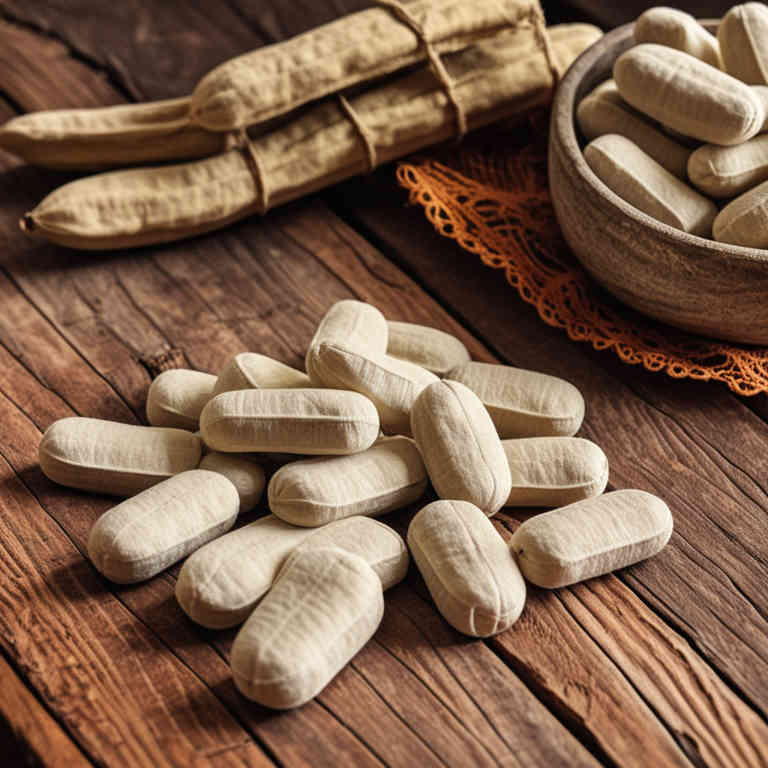Mucuna pruriens lozenge for medicinal use

Mucuna pruriens lozenge is a herbal preparation derived from the seeds of the Mucuna pruriens plant, commonly known as cow-itch or velvet bean.
It is traditionally used in herbalism for its rich content of L-DOPA, a precursor to dopamine, which supports mood regulation and neurological function. The lozenge form allows for easy consumption and is often used to alleviate symptoms of depression, anxiety, and Parkinson’s disease. It may also aid in improving libido and reproductive health due to its adaptogenic properties.
This preparation is valued in both traditional and modern herbal practices for its potential therapeutic benefits.
Uses
Mucuna pruriens lozenge has been used to support reproductive health and enhance libido in traditional Ayurvedic and Chinese medicine for centuries.
Historically, it was valued for its ability to stimulate testosterone production and improve sexual function, particularly in men. In modern contexts, it is also used to address symptoms of depression and anxiety due to its high concentration of L-dopa, a precursor to dopamine. Additionally, some studies suggest potential benefits for neurological conditions like Parkinson’s disease.
However, more research is needed to fully understand its efficacy and safety in contemporary medical practice.
Benefits
Mucuna pruriens lozenge has health benefits such as enhancing libido and sexual function due to its high content of L-DOPA, a precursor to dopamine.
It may also support mood regulation and reduce symptoms of depression by boosting neurotransmitter activity. Additionally, it has been traditionally used to improve fertility and enhance physical performance. The lozenge form allows for easy consumption and may aid in maintaining consistent dosing.
Overall, Mucuna pruriens lozenge is considered a valuable herbal supplement for those seeking natural support for sexual health and emotional well-being.
Constituents
Mucuna pruriens lozenge active constituents include L-DOPA, mucunine, and various alkaloids.
These compounds are known to support neurological function and may help in managing conditions like Parkinson's disease. L-DOPA is a precursor to dopamine, which plays a crucial role in brain function and mood regulation. Mucunine has been associated with enhancing cognitive performance and reducing anxiety.
Additionally, the lozenge may provide antioxidant and anti-inflammatory benefits due to its rich content of polyphenols and other bioactive compounds.
Preparation
To make Mucuna pruriens lozenge, first gather dried Mucuna pruriens seeds and clean them thoroughly.
Next, grind the seeds into a fine powder using a grinder or mortar and pestle. Then, mix the powder with a binding agent such as honey or glycerin to form a sticky consistency. Shape the mixture into small lozenges using molds or by hand.
Finally, allow the lozenges to dry completely in a cool, dry place before storing them in an airtight container.
Side Effects
Mucuna pruriens lozenge may lead to side effects such as gastrointestinal discomfort, including nausea, vomiting, and diarrhea.
It may also cause allergic reactions in individuals sensitive to the plant's components. In some cases, it can lead to drowsiness or dizziness due to its effects on neurotransmitters. Long-term use might result in hormonal imbalances, particularly affecting testosterone levels.
It is important to consult a healthcare professional before using this preparation, especially for those with pre-existing medical conditions or on other medications.